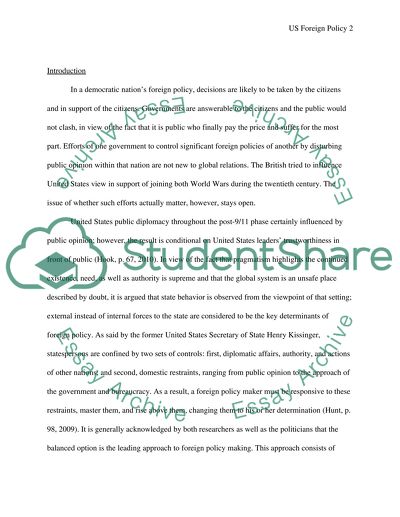Cite this document
(“U.S. foreign policy Essay Example | Topics and Well Written Essays - 1500 words”, n.d.)
Retrieved from https://studentshare.org/politics/1423703-us-foreign-policy
Retrieved from https://studentshare.org/politics/1423703-us-foreign-policy
(U.S. Foreign Policy Essay Example | Topics and Well Written Essays - 1500 Words)
https://studentshare.org/politics/1423703-us-foreign-policy.
https://studentshare.org/politics/1423703-us-foreign-policy.
“U.S. Foreign Policy Essay Example | Topics and Well Written Essays - 1500 Words”, n.d. https://studentshare.org/politics/1423703-us-foreign-policy.


